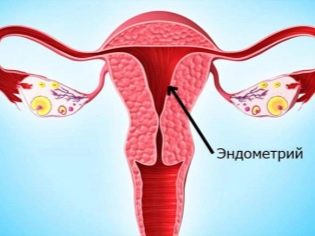What is Utrozhestan prescribed for IVF and when is it canceled?
The task of fertility specialists in IVF is not only to successfully carry out the fertilization itself, but also to create optimal conditions for the embryos to settle down, implant and continue their development in the female body.
The likelihood of a successful IVF treatment course is increased when prescribing hormonal drugs that help doctors create the most necessary conditions. One of the popular remedies often prescribed to patients is Utrozhestan. Why it should be taken, how the tool works, how long it should be taken, we will tell in this article.
About the drug
"Utrozhestan" is a progesterone-containing drug and it belongs to the group of hormonal drugs. Progesterone is a female sex hormone that is responsible for the preservation and prolongation of pregnancy. Often the drug is used to treat infertility associated with an insufficient level of a given substance in the body, as well as in the case of habitual miscarriages.
The product is produced in the form of capsules, which have two types of use - by appointment, that is, orally, as well as for vaginal administration. Progesterone is based on the drug is almost identical to the natural female hormone, and therefore the body is perceived as physiologically maximal.
Analogues means are considered "Duphaston" and "Prajisan", they can also be used in conditions associated with a deficiency of its own progesterone in women.
The role of the drug in the IVF protocol
With IVF, this drug is prescribed to achieve several goals at once, each of which is extremely important for the final result. Since the results are waiting for one thing - the onset of a long-awaited pregnancy, then at each stage of in vitro fertilization, “Utrogestan” may be recommended.
Most often, the drug is prescribed from the day of the injection of gonadotropic hormone. Approximately in the middle of the protocol after intensive stimulation of the ovaries, the doctor through ultrasound examines the maturation of oocytes to the desired size. On this day, the hormone hCG is injected, which in an accelerated mode will allow the eggs to ripen before puncture. It takes about 24-36 hours before the collection of eggs. From the same day, it is recommended that Utrozhestan be taken orally or vaginally (at the discretion of the physician).
While taking progesterone, the luteal phase of the cycle is maintained, the endometrial layer is growing. If the functional inner layer of the uterus is too thin by the time of embryo replanting, implantation may not occur, and then all the efforts of doctors and patients in this protocol will be ineffective - pregnancy will not come.
Usually, women with various forms of infertility have certain problems with endometrial thickness, and therefore “Utrozhestan” and its analogs are prescribed to almost every first patient of IVF clinics.
The drug, or rather progesterone at its base, relaxes the muscles of the uterus, which allows you to avoid spontaneous hypertonus, which can not only prevent implantation, but also cause a miscarriage at the earliest time. Utrozhestan also helps to maintain the activity of the corpus luteum.
How to use?
As already mentioned, you can take the remedy traditionally - drinking water capsules, and you can vaginally, using capsules as candles.The vaginal method is considered more convenient in the first place because of the exact orientation of the action.
If a capsule is correctly introduced into the genital tract, progesterone in the blood of a woman gradually increases, almost as it happens during the natural cycle, which has a more beneficial effect on the functioning of the sex glands. Endometrium, according to some data, is growing more efficiently and quickly precisely with the intravaginal route of administration.
The oral route has its merits - you can drink a pill anywhere, anytime. To do this, it is not necessary to retire in the toilet and carry out the procedure for introducing the capsule into the vagina.
The dosage and regimen of the drug should be determined by the doctor on the basis of the obtained laboratory data on the level of progesterone in the patient. For oral administration, it is often recommended to take 100 mg or 150 mg twice a day. Dosage may be increased at the discretion of the fertility specialist.
For vaginal use, a daily dose of the drug in the range of 300-600 mg is usually recommended. Insert capsules have up to three times a day. Usually, the first capsule is started on the 14–15 day of the stimulated cycle, then it is recommended to put 100 mg twice a day from 15 to 25 days. From the 26th day of the cycle, if tests show the presence of pregnancy, the dose is increased every week, the number of injections increases.
In order to maintain the luteal phase after the oocyte puncture, the starting dose of 200 mg (up to 600 mg) is most often recommended from the day of the hCG injection and until the end of the second trimester of pregnancy.
There are several rules for taking hormonal drugs. They should be remembered when starting treatment with Utrozhestan. It is best to take the capsules in the morning and in the evening so that it takes 12 hours between doses. If you are assigned three times a day, then the time between capsules should be equal to 8 hours.
Take the drug you need at the same time, If you forget to take another dose, you do not need to panic. The following must be taken strictly in the time allotted to it, without shifting the usual schedule.
To reduce or increase the dosage yourself is strictly prohibited. If side effects occur, you should inform your doctor.
When is canceled?
Two weeks after embryo grafting, a woman should be given a blood test for hCG. If he shows the absence of pregnancy, it is accepted to cancel the drug immediately. A few days after that, menstruation comes.
If tests and ultrasound indicate the presence of pregnancy, the abolition of "Utrozhestan" is considered unfavorable. In pregnancy after IVF, it is recommended to keep the developing fetus hormonally for quite a long time.
When vaginal administration of the drug should usually be taken before the time when the placenta completely takes over all the functions of providing gestation with the necessary hormones, as well as after the expiration of the increased threat of interruption. Most often, reception is recommended up to 24-28 weeks. In case of oral administration, “Utrozhestan” can be canceled at the end of the first trimester at the discretion of the doctor.
Cancellation should occur gradually, reduce the dose of the drug on the recommendation of the doctor as long as there is nothing to accept. Abrupt discontinuation of capsules will most likely lead to hormonal shock and miscarriage.
If the funds are canceled correctly and according to the scheme, a slight bloody "daub" may still appear, this is considered a variant of the physiological norm, if the discharge stops within a few days.
Side effects
A woman who takes "Utrozhestan" during the IVF treatment protocol often experiences mood swings. Exposure to the central nervous system is considered one of the most common side effects of progesterone. She may experience unmotivated irritation, depression, anxiety.
Many say that the body temperature rises, while there are no signs of a cold or other illness. Drowsiness and headaches are often observed. Almost all of them have varying degrees of abdominal distention, resembling increased flatulence, and sometimes - vomiting and diarrhea.
Less commonly, a woman may experience fluctuations in body weight, acne, allergies such as urticaria and erythema.
Reviews
Reviews of this Belgian drug are quite positive. Most women, despite the appearance of side effects, claim that they transferred the drug well, and the side effects themselves were rather weak.
Many note that, to support after the transfer, doctors prescribed a combined reception of Utrogestan and Duphaston, and they also often supplement the support with injections of progesterone oil solution.
A lot of questions in pregnant women are associated with the abolition of the drug, because everyone cancels it at different times.
To solve this question is the competence of the doctor. And therefore there is confusion on thematic forums on the Internet about the timing and method of canceling the hormone.
Reviews of the doctor about the drug "Utrozhestan": indications and contraindications, regimen, analogues, see the next video.















